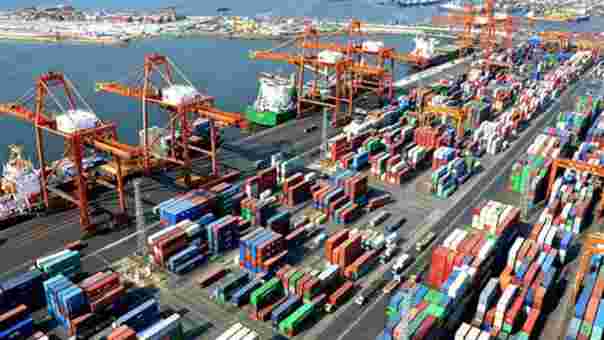Karachi, February 11, 2025 – The Port Qasim Authority (PQA) has released the latest shipping operations report for Tuesday, February 11, 2025, detailing vessel movements over the past 24 hours. The updates, issued at 08:00 hours, provide critical information for stakeholders involved in maritime trade and logistics at Port Qasim.
Vessel Departures and Arrivals at Port Qasim
Several vessels completed their operations and departed from Port Qasim on Tuesday. Among them was M.T-MARIA, which sailed out carrying 28,351 metric tons of cement. Another vessel, M.T-CHINOOK I, departed after discharging 17,477 metric tons of palm oil, while M.V-ELENI T completed its container handling operations before setting sail.
Meanwhile, berthing operations at Port Qasim continued with a steady flow of incoming cargo. The container vessel M.V-KARLSKRONA docked at 09:30 AM, facilitating trade through one of the country’s busiest ports. Similarly, M.V-KOUROS QUEEN berthed at 11:00 AM, bringing in a 54,152-ton shipment of coal. Another notable arrival was M.V-SPIKE, which secured a berth at 11:15 AM, unloading 58,618 metric tons of soybean seed, a crucial import for Pakistan’s edible oil and feed industries.
Diverse Cargo and Strategic Importance of Port Qasim
As one of Pakistan’s primary deep-sea ports, Port Qasim handles a diverse range of commodities, playing a critical role in sustaining the country’s economy. From containerized shipments to bulk cargo, the port remains a key gateway for essential imports such as palm oil, coal, and soybean seed. Additionally, exports like cement and rice continue to strengthen Pakistan’s trade balance, with vessels like M.V-CLIPPER AEGINA loading 21,000 metric tons of rice and 6,000 metric tons of cement before setting sail.
Ongoing Operations and Future Outlook
Shipping activity at Port Qasim remains robust, with vessels arriving and departing on a tight schedule. The efficient handling of cargo ensures that industrial supply chains remain uninterrupted, supporting local businesses and international trade. As global demand for commodities fluctuates, Port Qasim is expected to maintain its position as a crucial trade hub, accommodating increasing shipping traffic in the coming weeks.
With steady operations and efficient management, Port Qasim continues to reinforce its significance as a vital pillar of Pakistan’s maritime industry, ensuring seamless trade and logistics for the nation.
